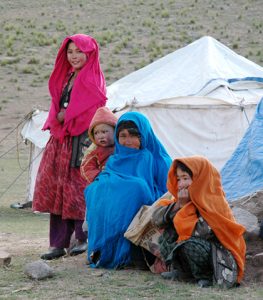Australia has a moral duty to the people of Afghanistan
Opinion piece – Barat Ali Batoor
After a generation-long war in Afghanistan Australia made promises to the people of the country it did not keep, it now not only has the opportunity but the responsibility to act on those promises.
On October 22, 2001 Australian troops landed in Afghanistan as part of ‘Operation Enduring Freedom’; a mission infamously described by then President George Bush as part of the ‘War on Terror’.
 Over the next 20 years 26,000 Australian troops went to Afghanistan, most were based in central Uruzgan Province.
Over the next 20 years 26,000 Australian troops went to Afghanistan, most were based in central Uruzgan Province.
Historically, Uruzgan is home to the Hazara people. But in the 1880s under the rule of King Abdul Rahman, the Hazaras were evicted from their ancestral lands and more than 60 per cent of their population brutally massacred. Their lands were then distributed to Pashtun tribes who now make up a majority of the population of the province.
With the Taliban taking over Afghanistan in the mid-1990s the Hazaras once again faced ethnic cleansing. The infamous quote of the then Taliban’s governor of Mazar i Sharif:
“Wherever you [Hazaras] go we will catch you. If you go up, we will pull you down by your feet; if you hide below, we will pull you up by your hair.” is still friends in the minds of the Hazara people.”
No wonder the US invasion of Afghanistan initially was nothing less than a miracle for the Hazaras.
Many supported the Australian and the US mission and fought alongside NATO forces against the Taliban in the hope of bringing peace and stability to the country.
Promises of nation building, women’s rights, human rights, freedom of expression and democracy built optimism among the people of Afghanistan; and they sent a message of hope to refugees from Afghanistan all over the world, encouraging them to return to their homeland to rebuild their own lives and their country.
But after the Doha agreement in February 2020 between the US and the Taliban, those who believed the promises of the coalition were betrayed. The deal legitimised the Taliban and gave them the arrogance of victors. Although the Ashraf Ghani’s Government was extremely corrupt, it was still the only hope for millions of people. The deal shattered that hope.
The agreement didn’t guarantee the safety of the most vulnerable people such as the Hazaras, women, children, religious minorities, journalists, human rights defenders and the members of the LGBTQI community.
Since the fall of Kabul, the Taliban has imposed an unannounced ban on girls’ education. Women are prohibited from going to work and journalists have been tortured to silence them.
In recent weeks, more than 3,500 Hazara families have been evicted from their ancestral lands in Uruzgan and Daikundi provinces.
After Daikundi the Taliban have started demolishing homes of the Hazaras in Mazar e Sharif and warned thousands of people to leave their houses.
They have also started eviction proceedings in the Helmand province.
The Taliban are following the policies of their ancestors in ethnically cleansing the Hazaras from Afghanistan and distributing their lands among their own people, just as Abdul Rahman did in the 1880s.
The most recent indication of this came just on October 8, the same day Australia forces joined the war in 2001, when at least 150 people – mostly Hazaras – were killed and many others injured in a suicide attack on a mosque in the Sayed Abad area of Kunduz City, in central Afghanistan.
The UN Charter says the international community has a responsibility “to use appropriate diplomatic, humanitarian and other peaceful means to help protect populations from genocide, war crimes, ethnic cleansing and crimes against humanity.”
As a member country of the UN and home to the fourth largest population of Hazaras in the world, Australia has a responsibility to protect the Hazaras in Afghanistan from being ethnically cleansed.
Australia has a moral obligation to help those who supported them in their mission in Afghanistan and not abandon them. We need to show compassion and the spirit of mateship.
Ordinary Australians, community groups and businesses have responded generously and without hesitation to support the small number of refugees who have arrived here after being evacuated from Kabul last month.
There has been an outpouring of offers of moral support as well as food, clothing and other goods. And Australia’s refugee agencies as well as our own established Afghani communities have swung into action to support the new arrivals on their settlement journeys here.
But the Australian Government could do more.
Australia could help some of the most vulnerable people left behind in Afghanistan from being persecuted by granting 20,000 additional humanitarian visas.
And it could expedite the reunification of families by granting visas to people in Afghanistan who have connections in Australia.
Australia could also lift detention arrangements for people who now find it impossible to return home because of the persecution, or worse, that would await them under the brutal and repressive Taliban regime.
History shows abandoning mates in trouble has never been part of the Australian character. The nation should not start now.
Barat Ali Batoor is a double Walkley award winning Hazara-Australian photojournalist. He came to Australia through UNHCR’s humanitarian program in 2013 and is now an Australian citizen. He lives in Melbourne.












